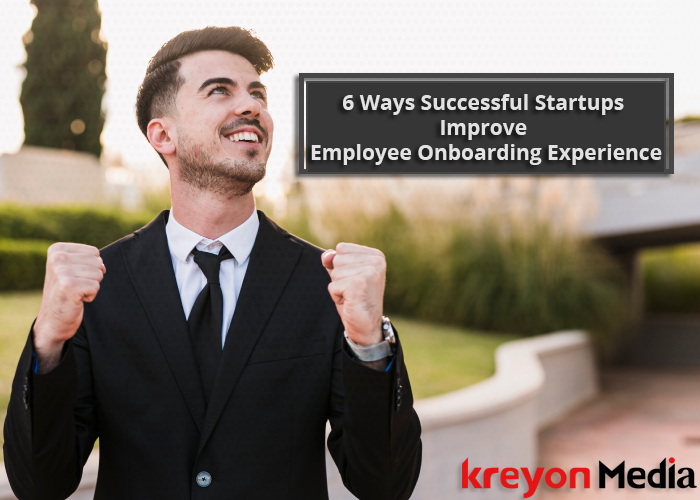
Research by Leadership IQ shows that 81% of new hires fail due to a cultural misfit. But, good employee onboarding can make a huge impact on the performance of new hires.
While big companies typically have the luxury of time and resources, employees may take a few months to settle in their new roles. Startups are more challenging as employees need to produce the goods at the earliest stage. For an employee to succeed in a startup, they need to understand the performance expectations, demands and timeline of goals for them.
Companies can spend more time in building an interactive onboarding experience to get things rolling for the new joinees. Even in absence of long documents of policies like the MNCs, the start-ups can prepare simple documentation of what is needed from employees. Research shows that when employee onboarding is done well, higher job satisfaction, increases organisational commitment, reduces turnover & improves performance. Here’s how successful startups improve employee onboarding:
1. Communicate & Document

Startups need to communicate their expectations from new employees in explicit terms. The performance evaluation measures, goals and timelines for the new employees. The employees should also be made aware of the dynamic nature and shifting priorities in a startup.
A good communication plan involves clarity around deliverables for your employees. It also involves taking inputs from employees and guiding them at all levels to succeed. Documenting the core essentials of the job is a must. Provide your new employees with relevant policies and paperwork to smoothen their journey in your organisation.
2. Work Culture
People who work sincerely and find happiness in what they are doing are more likely to succeed at startups. For others, it could be a daunting situation. Your onboarding experience for an employee must be able to set the expectations right. Startups are places where people have to grind it out. There are no shortcuts.
When a new employee joins your organisation, identify their core skills and put their talent to best use at work. Employees who are self driven and passionate about their work are the ones who usually end up building the great stuff.
3. Set-Up

Providing a new hire all the tools for work will make their life easy. So, whether it is their desk, workstation and other pre-requisites like the softwares etc., set them up in advance. It will make things organised and create a good first impression on the new hire. The new joinees should also be aware of the basics like:
Basics of tools used at work
Best practices for softwares and licenses
Security aspects & intellectual property policies
Restricted sites during office hours
Team and reporting Manager details
Team communication protocols
Do’s and don’ts for social media
Business approvals
Quality and performance standards
Goals and timelines
Make sure you set the ball rolling with the new employees at the earliest. Startups need everything they can to organise things for the new hires and support their new joinees with clarity.
4. Mentor your New Hires
One of the best ways to build employees is to have mentors for them. So, when a new hire joins your organisation, having someone mentor him can make a big difference. The employees will gradually transition in their new roles with the help of their mentors. The mentor is very effective in making the employees a growth mindset too.
Startups need employees who are flexible, have a cando attitude and put learning to action quickly. Mentors are able to help in the overall development of new employees. They can learn about the employees expectations, skills and effectively contribute towards their career development.
5. Performance Benefits & Appraisals

Every startup thrives on performance and results from its employees. A new employee should be driven to perform and showcase himself at work everyday. Your company needs to be able to bring out the best in an employee according to his potential. The onboarding program must be spelt clearly to encourage top performance from new joinees.
Your organisation should show how an employee’s performance will be linked to his growth & appraisals. The performance at a startup can also lead to customised benefits, leadership roles and stock options for employees.
Not every employee is meant to succeed at a startup. When it comes to adaptability, flexibility and performance, startups have stringent demands. A startup culture that is driven by excellence breeds success for both the organisation and its people.
6. Set the Roadmap
Employee onboarding is a way to set the roadmap for employees in terms of the culture and values etc. The employees should be able to understand what your company is doing, how they can contribute and what is needed from them on a day to day basis.
For e.g. LinkedIn ensures each new hire ends their first day with an in-depth roadmap for the coming weeks. Zappos has a five week course around the culture and values of their company. Infact, they even pay candidates to quit the company after the course, if they don’t feel fit for their culture.
Many employees are overwhelmed to work in a startup. They find the tasks are overwhelming and unable to cope up with the demands of the work. In that case, the employees should be allowed to leave amicably. All this should be transparent to the new hires. They should stick with your company, if they believe it and ready to give whatever it takes.







